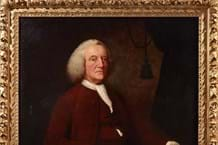When does the right apply?
On the resale of a qualifying work where the price exceeds €1000, provided that:
• the resale takes place in the course of a business of dealing in works of art and does so more than three years after the artist first parted with the work;
• the resale takes place in the course of a business of dealing in works of art, within three years of the author first parting with it if the resale price is over €10,000;
• any subsequent sales of that work, provided that the resale takes place in the course of a business of dealing in works of art, where the prices exceeds €1000.
All of the above apply even if when the artist parted with the work, they did not sell it. Transfer of ownership is all that is required.
Note: All works, defined as works of art under the regulations, which are held under copyright qualify, regardless of when they were made.
What is the definition of a work of art under the regulations?:
Any work of graphic or plastic art such as a picture, a collage, a painting, a drawing, an engraving, a print, a lith graph, a sculpture, a tapestry, a ceramic, an item of glassware or a photograph.
However, a copy of a work is not to be regarded as a work unless the copy is one of a limited number which have been made by the author or under his authority.
What happens in the case of joint authorship?:
In the case of a work of joint authorship, the resale right shall belong to the artists as owners in common. The right shall be held in equal shares or in such other shares as may be agreed.
Such an agreement must be in writing signed by or on behalf of each party to the agreement.
‘Work of joint authorship’ means a work created by two or more artists.
Can an artist assign their rights to anyone else?:
An artist cannot assign their resale right to anyone else, except to a qualifying body under the regulations, such as a charity.
Can an artist waive their right?:
An artist cannot waive their resale right. Nor can they agree to share or repay resale royalties, for example to their dealer or a client of their dealer’s.
Who is liable to pay the resale royalty?:
The following shall be jointly and severally liable to pay the resale royalty: the seller, the agent of the seller, or where there is no such agent, the agent of the buyer, or where there are no such agents, the buyer.
Liability shall arise on the completion of the sale; however, a person who is liable may withhold payment until evidence of entitlement to be paid the royalty is produced.
Any liability to pay resale royalty in respect of a resale right which belongs to two or more persons as owners in common is discharged by a payment of the total amount of royalty to one of those persons.
Who can collect the resale right?:
Only a collecting society, ie the Design and Artists’ Copyright Society (DACS), may collect the right, even if an artist has not assigned them that right.
Where there is more than one such collecting society, the holder may choose which of them is so mandated, although at the moment there is only DACS, who propose charging a fee of 25 per cent to collect the right.
For those purposes ‘collecting society’ means a society or other organisation which has as its main object, or one of its main objects, the administration of rights on behalf of more than one artist; and the management of resale right is the collection of resale royalty on behalf of the holder of the right in return for a fixed fee or a percentage of the royalty.
What rights do artists or collecting agencies have to obtain information in order to collect the right?:
Under the regulations, an artist holding copyright, or a person acting on their behalf, can ask for any information concerning a resale in order to secure that right. They can make this request to any art market professional involved with the sale within three years of the sale.
The person to whom the request is made must do everything in their power to supply the information within 90 days of the request.Failure to do so may lead to a county court appolication for an order requiring the person to whom the request is made to supply the information.
In Scotland, such an application would be made by summary application to the sheriff, and the procedure for breach of an order dealt with as for a contempt of court.
Information obtained under this regulation shall be treated as confidential.
CALCULATING THE RESALE ROYALTY:
The sale price is the price obtained for the sale, net of the tax payable on the sale (the hammer price at auction), and converted into euros at the European Central Bank reference rate prevailing at the contract date.
The resale right on each sale will be calculated using the following percentage values for each relevant portion of the price:
From €0 to €50,000: 4%
From €50,000.01 to €200,000: 3%
From €200,000.01 to €350,000: 1%
From €350,000.01 to €500,000: 0.5%
Exceeding €500,000: 0.25%
However, the total amount of royalty payable on any sale shall not exceed €12,500.
Droit de Suite – who has to pay what to whom and when...
Who has the resale right? The artist holding copyright of their work or a qualifying body to whom they have assigned the right under the regulations, such as a charity. Until January 1, 2010, the right only applies if the artist is living.




